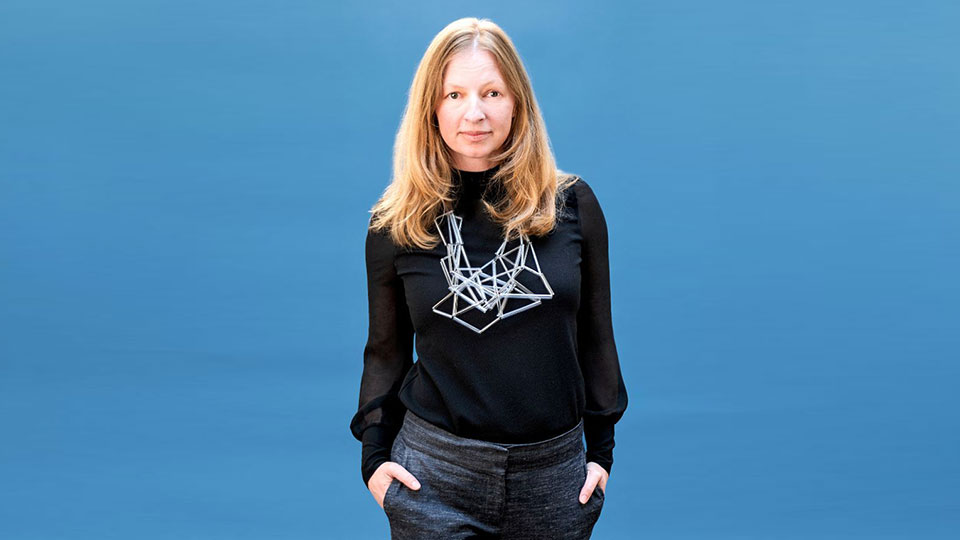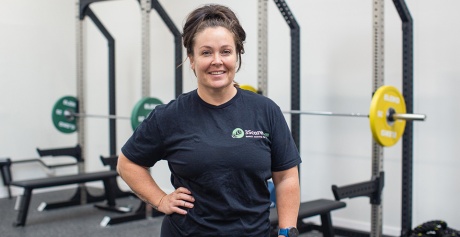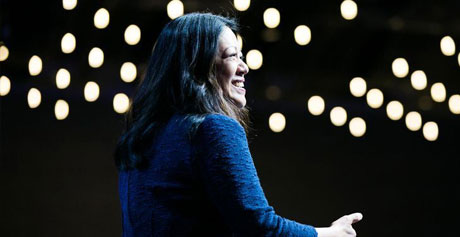A Conversation With Anne Richardson, Author & Senior Director of Global Collaborations At The San Francisco Exploratorium.

Anne Richardson is an author of experiences that kindle your curiosity. In her work, everything in the world is astonishing and worthy of our attention, from a drop of rain to the way we figure things out together. She is the senior director of Global Collaborations at the Exploratorium, San Francisco, where she works with partners worldwide to imagine and create new science centers and other extraordinary learning experiences. Richardson holds a PhD and an MS in environmental studies from Antioch University New England, and a BA in art history from Northwestern University. She lives in the San Francisco Bay Area with her family, including two little explorers.
Q: Can you elaborate on your current role, the Exploratorium, and its philosophy of learning?
AR: My role is to lead the Exploratorium’s Global Collaborations. My teams work with partners around the world to build new institutions and transform existing ones. For example, we’re working with a branch of the National Confederation of Industry in Brazil to open SESI Lab in Brasilia this November. SESI Lab is inspired by the Exploratorium and is also very grounded in the local context.
Our approach to learning is to create opportunities for people to interact directly with phenomena in the world and to explore their own questions. We call this inquiry-based learning. Fundamentally, we know that people can and will notice things in the world, ask good questions, and figure things out. Our job is to set the conditions for that to happen, to provide tools for noticing and investigating, and to facilitate the conversations in which people share their ideas and make meaning out of their experiences.
Q: How do you inspire your children's curiosity and attentiveness to the world?
AR: I don’t need to inspire it so much as allow for and celebrate it. As an adult, my instinct is often to be in a hurry and to want to rein them in. They remind me to slow down and appreciate the world over and over again. Recently, my daughter (age seven) showed me the long, slender seed pods of California poppies, something I’ve walked past countless times and had never noticed before. My son (age five) has been insistent on understanding how the electrical system in our house works and requested that I remove part of the wall around the light switches so that he can see how it all connects. We agreed on a video instead!
Q: Why is STEAM education so important at home?
AR: Learning experiences that allow for integration across disciplines and for children to test and apply their ideas are really important. Children have all kinds of wonderful ideas about what to explore, what to build, and what to try. When they have the tools and materials in their hands, some guidance, and confidence in their ability to do things and learn things, this will carry them a long way. They will have many complex problems to address in their lives, so let’s set them up to feel curious and confident about getting into them.
Q: What inspired you to write Octopuses Have Zero Bones?
AR: Creating this book was how I kept myself on the rails during the earliest months of the pandemic. While waiting to fall asleep each night, my daughter would ask me questions about the world, things like: What’s the smallest plankton in the ocean? How many whales are in a pod? How long do octopuses live? Some I could answer, and others we would have to look up in the morning. I felt compelled to write all of these numbers down for her in one place and then create some sort of organizing framework for them. This naturally led to a list of specific numbers for which I had to find meaning, and this was a completely wonderful way to occupy my mind each night before falling asleep.
Q: To you, what is the most important factor in a child's education? How can we nurture it?
AR: Love. Children need to know that they are seen and loved. Everything else will come from there.
Q: Do you have advice for children who want to explore fields in STEAM?
AR: Go for it! Try something you think you might like and work hard.
Q: What is one word of advice you can offer to young women who want to reach your level of success?
AR: Focus. Do something and focus on doing it well. Don’t worry so much about it being the right thing, worry about how you’re doing it.
Q: Can you tell our audience one of your most memorable moments in your career?
AR: While I was in graduate school, I co-authored a K-8 curriculum called Great Lakes in My World for the Alliance for the Great Lakes. As part of our process, we piloted activities with teachers and informal educators and offered professional development sessions for those interested in using the curriculum. One summer, we took a research vessel onto Lake Michigan with a group of scientists and teachers for several days of intensive learning about lake ecology. There was significant personal and professional learning for me that week. But what was most memorable was the feeling of the great expansiveness of the sky and water when we were in the middle of Lake Michigan and couldn’t see land in any direction. The feeling was even more remarkable when standing on the deck of the boat at night in complete darkness.
Q: At the start of your career, what do you wish you had known?
AR: I wish I had been less worried about how starting a family would impact my career. At that time, I was concerned that having children would be perceived as a distraction from my commitment to work. I’ve learned to be less worried about what other people think and more focused on achieving results and living a joyful life.
Q: After high school, where did you feel your career path would take you?
AR: I had the sense that I would do something creative and that I was drawn to informal learning, but I really didn’t know what that might look like as a career until I started working in jobs in my field. I was interested in becoming a non-fiction children’s author pretty early in my career and finally began doing it in 2020.
Q: Can you tell us how you manage your work-life balance?
AR: My work and family are both important parts of being a whole person, and they both happen all of the time—neither is restricted to a set schedule. It’s important for me to set priorities in both domains so that it’s easier for me to make decisions when schedule conflicts arise. That said, the world is not yet set up to support people who work both in and out of the home, and I often feel like I’m doing high-stress juggling on a daily basis. Many women find themselves in leadership roles at work during a time in their lives when they’re also caring for young children and aging parents. We need to normalize this reality and also that men can and do have those responsibilities too.
Seven Things About Anne Richardson
1. What’s the most amazing adventure you’ve ever been on?
One of the most special adventures was a trip to Laguna San Ignacio to visit the gray whales where they bear and nurse their calves in winter. I attended a talk by Dick Russel, author of Eye of the Whale, and was completely taken by the story of the whales’ migration. I convinced my (now) husband and dear childhood friend to travel with me by bus from San Francisco to Baja to sleep on a beach and sit in little boats in the lagoon. The whales would swim under our boats and push the calves up in such a way that we could look each other in the eye.
2. Where’s the strangest place you’ve ever been?
The strangest place (in a good way) I’ve been to was a sunglasses store in Seoul called Gentle Monster. Sunglasses are a very minor part of the stores—instead, the stores are immersive art installations that are a bit surreal and ever-changing. I remember an antique bathtub vignette and a small room with a “hidden” door that felt like a speakeasy.
3. What’s the most spontaneous thing you’ve done?
I was a really tiny kid, and I was in daycare from a young age. As a standard part of going to this daycare, we were all required to be on the swim team. I dreaded every moment of this because I was so small and terrible at swimming that I had to stop halfway down the pool for a rest, even during meets. In the summers, I went to a sleep-away camp with a lake, where we had to take a swim test that would determine how deep into the lake we were allowed to go. There were shallow areas for the “minnows” and the stronger swimmers, “rafters,” could go out to the floating docks. There was a special swim test for “lakers” which involved swimming across the whole lake. They always announced this option, but for the most part, nobody ever did it. And maybe, for this reason, I decided that I would do the laker swim test. So, I got into the lake on one side, and some counselors rowed a boat in front of me (to be ready to save me from drowning in the middle of the lake), and I swam across the entire lake. My mother was shocked when she learned that I had done this. I’m not sure how far it was, but I remember that I had a lot of time to think about the idea of determination while I was doing it. This seemed like a completely wild thing at the time (given the kid I was), but in retrospect was pretty determinative of how I would go about life.
4. Do you read reviews, or just go with your gut?
I like to read reviews but prefer to go with my gut when it comes to instructions.
5. What’s your big passion?
My passion is getting opportunities out there for kids and adults to wonder and learn about the world around them. Besides working with amazing partners to set up science centers around the world, I’m writing children’s books with curiosity at the core. I hope to get Octopuses Have Zero Bones into the hands of as many kids as possible and am so thrilled that it will be published in more than ten languages. This fall, I’ll be working on writing the books that will follow!
6. Which of the five senses would you say is your strongest?
I have an excellent sense of smell.
7. Cake or pie?
Cake and pie. For breakfast.

